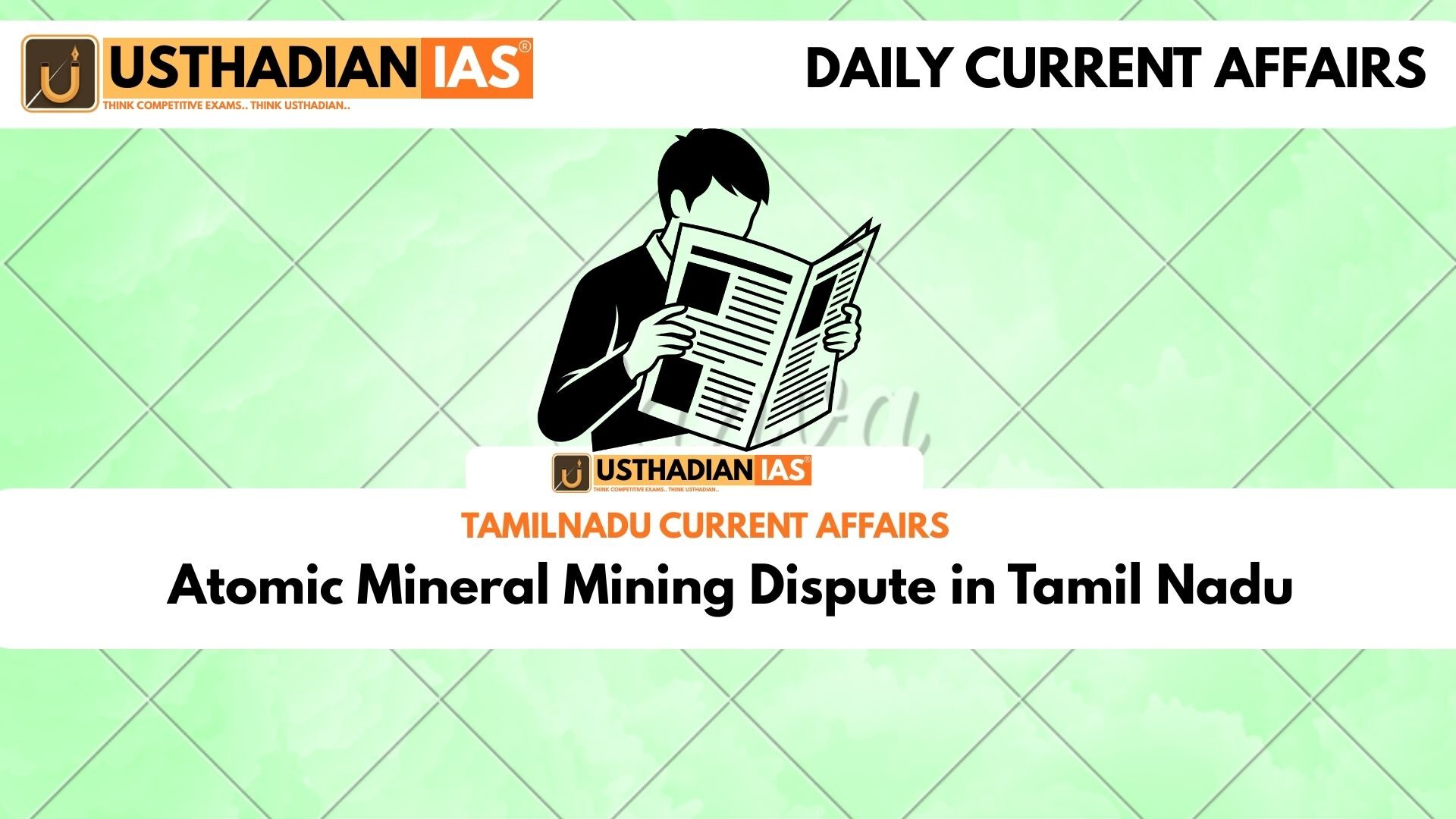Centre’s new exemption
Atomic Mineral Mining Dispute in Tamil Nadu: The Union Ministry of Environment, Forest and Climate Change (MoEFCC) issued an office memorandum on 8 September 2025. The notification exempts projects involving atomic, critical, and strategic minerals from the process of public consultation under environmental clearance procedures.
Tamil Nadu’s opposition
The Tamil Nadu government opposed this move, stating it restricts citizens’ participation in environmental decision-making. It argued that the exemption dilutes the Environment Impact Assessment (EIA) process, which ensures accountability and transparency.
Legal precedents cited
Tamil Nadu highlighted the Supreme Court’s 2020 judgment in Alembic Pharmaceuticals Ltd. v. Rohit Prajapati. The court had held that substantive changes in law cannot be done through executive memoranda or notifications. Instead, they require proper legislative amendment.
Environmental concerns
Mining of atomic minerals such as monazite, ilmenite, zircon, and thorium poses environmental risks due to radiation exposure and ecosystem damage. Exempting these projects from consultation could increase conflicts between local communities, governments, and industries.
Static GK fact: India has one of the largest reserves of monazite, containing thorium, mainly found in coastal states like Tamil Nadu, Kerala, and Odisha.
Strategic minerals importance
The Centre defends the exemption by citing the strategic importance of atomic and critical minerals. These minerals are vital for nuclear energy, defense technology, renewable energy, and electronics manufacturing.
Static GK fact: Thorium reserves in India are estimated at over 12 million tonnes, making the country one of the global leaders in thorium resources.
Balance between development and rights
The issue highlights the tension between resource security and environmental democracy. While strategic minerals are vital for India’s energy and defense goals, public consultation ensures transparency and protects local communities. States like Tamil Nadu demand that national policies respect both development needs and constitutional rights.
Way forward
Experts suggest a middle path that ensures fast-track clearance for strategic projects while maintaining limited but meaningful public participation. Without such balance, disputes between the Centre and States are likely to grow in resource governance.
Static Usthadian Current Affairs Table
Atomic Mineral Mining Dispute in Tamil Nadu:
| Topic | Detail |
| Date of MoEFCC memorandum | 8 September 2025 |
| Exempted minerals | Atomic, critical, and strategic minerals |
| Tamil Nadu’s stance | Opposed exemption, demanded withdrawal |
| Key legal precedent | Supreme Court 2020 Alembic Pharmaceuticals Ltd. v. Rohit Prajapati |
| Atomic minerals in India | Monazite, ilmenite, zircon, thorium |
| Major reserves | Tamil Nadu, Kerala, Odisha |
| Strategic importance | Nuclear energy, defense, electronics, renewable energy |
| India’s thorium reserves | Over 12 million tonnes |
| Concern raised | Lack of public consultation in EIA process |
| Core issue | Balancing national security with environmental rights |








